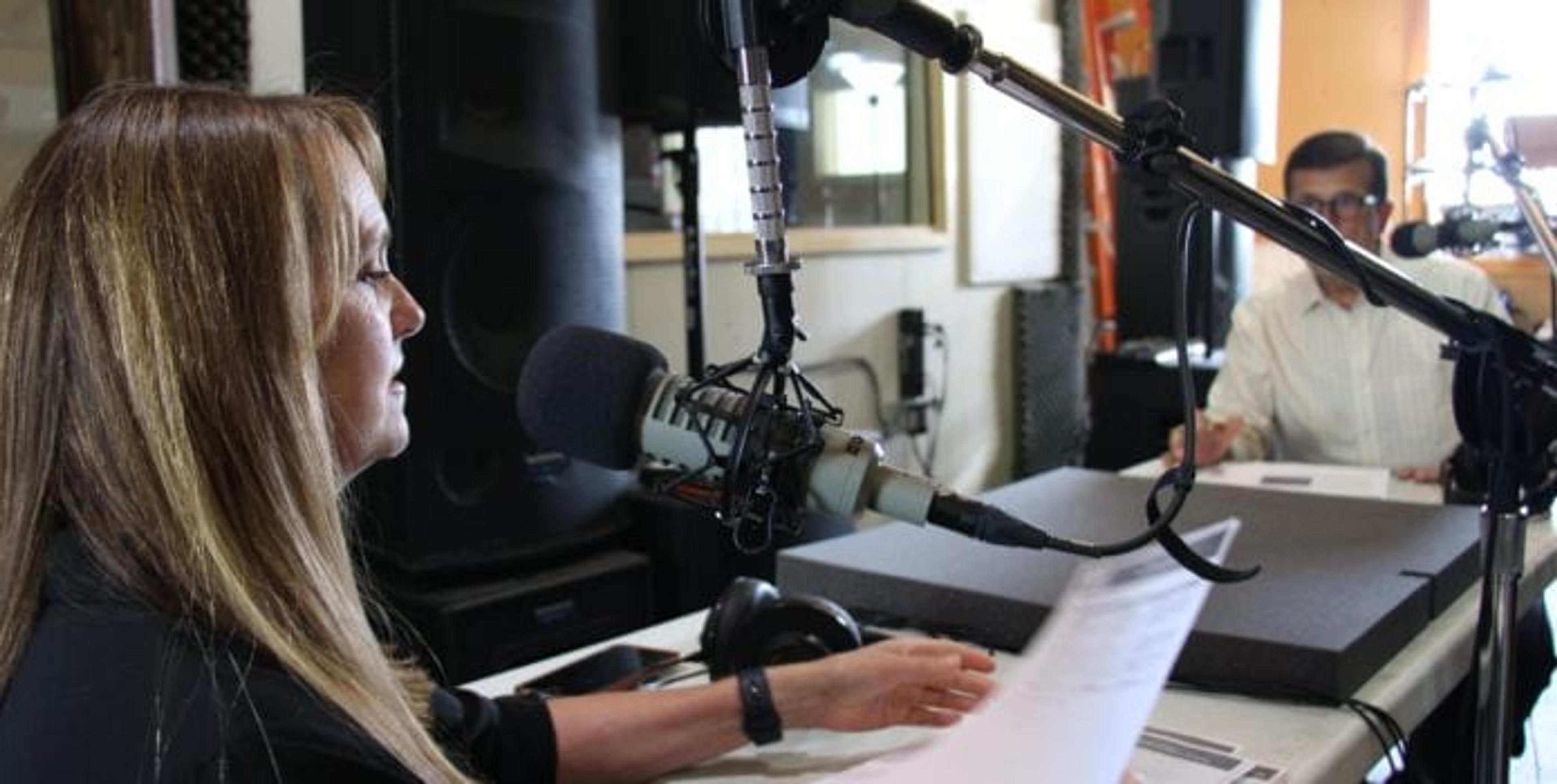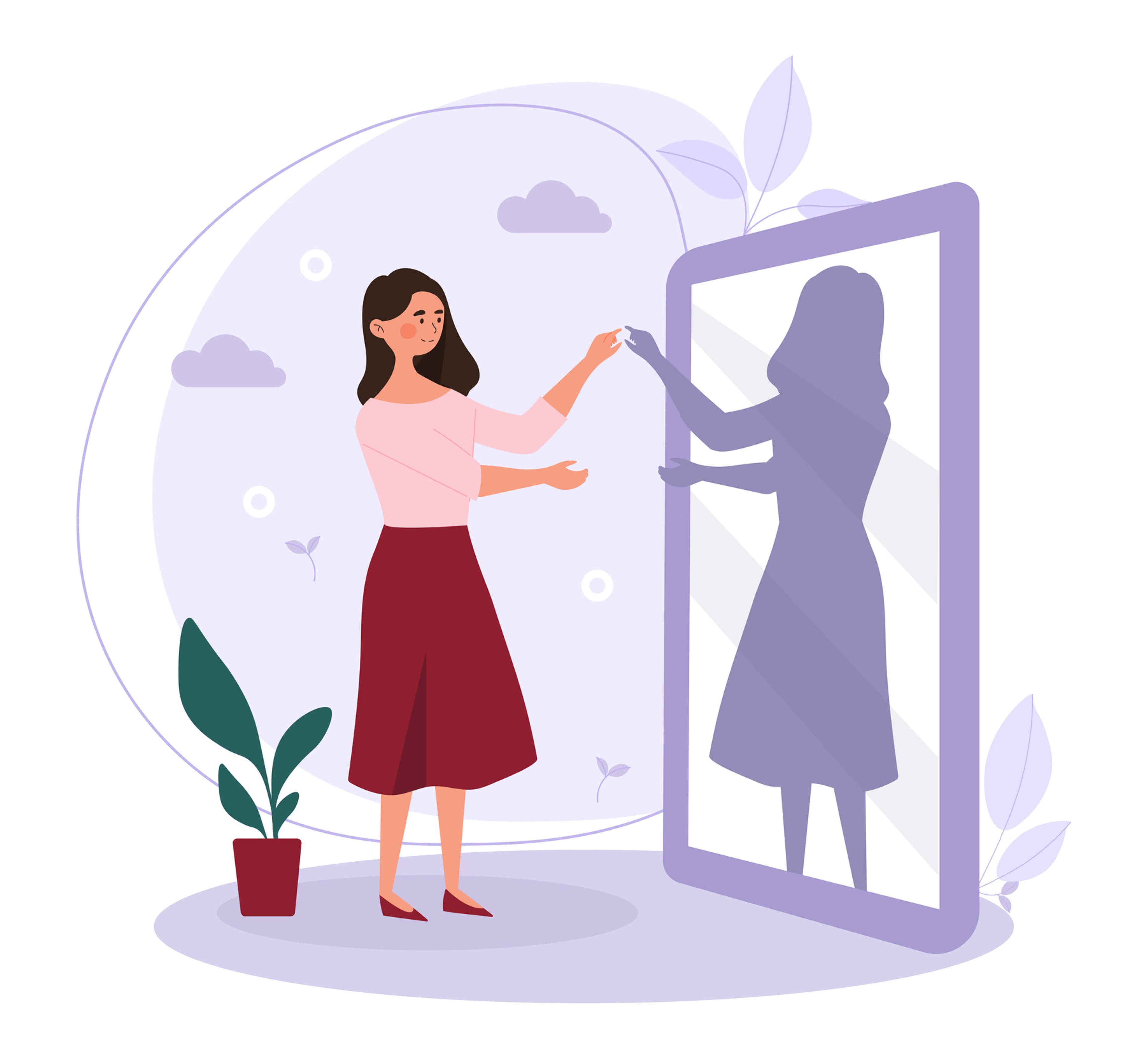Benefits of Journaling and The Positive Impact on Your Health
| 1 min read

00:00
00:00
About the Show
On this episode, Chuck Gaidica and Cindy Bjorkquist discuss positive psycology, gratitude and the health benefits of journaling.
“Every single day when I’m at my sink, I’m walking through my kitchen, I see the sign to remind me to be kind,” – Cindy Bjorkquist
In this episode of A Healthier Michigan Podcast, we explore:
- What’s changing in the industry with mindfulness and rewiring our brain.
- Is it possible to rewire our brain to be positive?
- How to increase our gratitude throughout the day.
- Some of the many health benefits from keeping a journal including increased immunity and reduced stress.
Transcript
Chuck: This is A Healthier Michigan Podcast, episode number nine. Today, we’re going to discuss the benefits of journaling, and the positive impact it can have on your health.
Chuck: Welcome to A Healthier Michigan Podcast, the podcast dedicated to navigating your life, how we can all improve our health and our well-being through small, healthy habits. And you know you can start implementing them today. I mean, you can really get started today. I’m your host, Chuck Gaidica. Each week, we’re going to sit down with a certified health expert from Blue Cross Blue Shield of Michigan, and we’re going to go in deep on some topics. We’ve already covered some of this; nutrition, well-being, stress reduction. In this episode, we’re going to be talking about gratitude, journaling, how we can rewire our brain.
Chuck: Our expert today, I can just tell by looking at her, she’s an expert in rewiring my brain. My wife will love that, because she’s been saying for years, “Could you just go to Home Depot and get some wire?” Cindy Bjorkquist is here. She is a, currently, rather, a director of health and wellness programs of Blue Cross Blue Shield of Michigan, and you know when you’ve got somebody here who’s got over 30 years of experience in the health and wellness industry, that is good. I just want to start off by saying, Cindy, welcome back to episode nine. I’m grateful for you. How was that? How was that?
Cindy: Oh, that makes me feel so warm and fuzzy inside.
Chuck: That’s my gratitude.
Cindy: That makes me sound old, though.
Chuck: Why? What do you mean?
Cindy: 33 years of doing this stuff.
Chuck: Oh, I know, but didn’t it fly?
Cindy: It did. It did.
Chuck: You look down at the kids and your two boys and you think, “Wow, time is moving.”
Cindy: I love life.
Chuck: So, can I really rewire my brain?
Cindy: Yeah. You know, this is a fascinating body of research in neuroscience, and what’s happening in this well-being place, if you will, is that they’re taking neuroscience and they’re taking positive psychology, infusing it into a lot of programming for these new wellness and well-being programs. But what this particularly talks about is, if you want to reprogram your default setting, so everybody has a default setting and your default setting may change through your life, but you have a default setting when you wake up in the morning, you’re either default wired for happiness or perkiness. I used to drive my boys crazy because I would wake up talking a million miles an hour and “Hey, have a good day,” in your face kind of positive, so some people are wired like that. Some people unfortunately are wired differently. So this body of research shows that you can rewire your brain for happiness, for success, for more compassion if you want to be more compassionate to other people, for empathy, like you just talked about. If you want to stop a bad habit or start a new habit, it’s just a different way of looking how to change your habits.
Cindy: This also extends to well-being programs and this mindfulness training and rewiring your brain can also affect glucose levels of diabetics, pain reduction, improve sleep, improve weight loss, mental health, decreasing anxiety and depression. There are a ton of apps out there that if you have anxiety and depression then you can actually download an app and meditate and be mindful and change the rewiring of your brain every morning.
Chuck: But there are a lot of benefits to what you are saying. If I’m going to think of something that helps people bigger than self and I feel good about that, or if I hug somebody, I mean there’s all kinds of research that hormones are released where we feel good, that’s going to have an impact across the board, right?
Cindy: Oh, absolutely. What’s changing is the science behind that. So we know when we hug somebody we feel good. I have this rule in my house, I still have it, that when my boys come to see me and they leave, we do a full brace hug. Before you leave my house we’re going to do a full brace hug.
Chuck: Yeah, we do too in our family.
Cindy: Oh, I love that! So that’s good, we know that. But what’s changing in the industry is this mindfulness and rewiring your brain, and retraining your brain. This is going into the research and science base now. And so that’s exciting. In 1981 if I recall, there was one study published in the ’80s on this, but now in 2016, now we’re in 2018, but by 2016 an average of 80 studies were published each month on mindfulness and how it’s helping people cope with their life and the face of change and retraining your brain. So all of this is starting to really propel itself into science-based literature, which is fascinating.
Chuck: So you’re saying … Are you saying that and citing all those studies because when we started to hear the word mindfulness, and I know it’s still kind of out there, like what is it, and you’ve tried to explain that for us. It did sound a bit like hocus pocus at the beginning.
Cindy: Right.
Chuck: it sounded like somebody wanted to sell me a book or if you just take my program you can retrain your brain. Now we’ve got people with PhDs in neuroscience that are telling us there are things we can do that will help us. This is legit.
Cindy: Yeah. And there’s a science behind it. So let’s just take that very first point where I said one of the things that you could change by changing your default setting and using mindfulness training is to make yourself happier. So to give you an example of the science. There is what’s called … I want to go to this university, Kyoto University in Japan, it’s called. There’s a scientist there that did a research study and he used MRI scans to locate the part of your brain that is activated with happiness. And so I have a picture here, but it’s in the frontal part here-
Chuck: That’s the picture of your brain? Whose brain is that?
Cindy: Yeah, yeah, yeah. My brain yeah. No, it’s a brain.
Chuck: That’s a big brain!
Cindy: I want a picture of my brain.
Cindy: But it’s the pecunious area. It’s located at the top of the brain, because you can’t see a graphic on this podcast, and towards the back, but it’s larger for people who feel happiness more intensely. The science link here at the Kyoto University is that when they had a body of people in this research study go through meditation training, and you know what meditation means, meditation is grounded actually in Biblical terms as well. So you’re centering yourself. You’re focusing on your breathing, you’re downing yourself. They increase the gray matter in that area in their brain. So the link here, and the jump, is that if you meditate that you may be able to change your default setting and become happier because the gray matter is actually larger in that area. So I don’t know, you know, it’s out there a little bit, but it’s science based-
Chuck: Yeah, but he’s doing MRIs.
Cindy: Yeah, yeah.
Chuck: Hold that picture up of the brain one more time. Because this is high tech podcasting. I mean, maybe somebody can see it.
Cindy: But this idea of happiness, you know the research behind it isn’t only that. They’ve got research on protecting your heart. Think about it. If you’re happy, there’s a protection in your heart. There are all these enzymes and hormones that play in your body, strengthening your immune system, combating stress, combating disease and disability, lengthening your life. So there’s just this flurry of research out there linking changing your default setting and maybe isolating just this one happiness area, and then you can do that through many different ways.
Chuck: And you talked about in, I don’t know if it was the last podcast episode or the one before, the idea of becoming resilient. If you’re happy and seeing all those benefits and all of a sudden you walk into the workplace or you head to a family event and you’ve got somebody who’s trying to bring you down. You know what I mean? That happens.
Cindy: Right.
Chuck: If you’re resilient you’re able to fight that off.
Cindy: Absolutely.
Chuck: It’s not just your immune system is tougher, you’re just able to say hey, I’m having a great day.
Cindy: Yeah. And being resilient also means, a lot of people use meditation and mindfulness to be resilient, but resilient is … It’s not like you’re not going to have negative things that happen throughout the day to you, but it’s your ability to bounce back from them. You acknowledge it and you don’t let your emotions take over, and then you actually are a resilient person, being able to bounce back and get on to your normal life through that.
Chuck: Mm-hmm (affirmative). So we can use all those fancy words … you know, I’m not a doctor, I just play one on podcast. Physiological, psychological well-being, physical manifestations, this stuff does sound like it’s out there, but you’ve got … And I know you’ve got a lot of this confined to memory, that’s why you’re here, that’s why I’m grateful you’re here, is this idea that this is real stuff, and if we just start practicing some of these things we can change the science of our brain.
Cindy: Right. Right. Exactly. Exactly.
Cindy: So you mentioned gratitude a couple times and that’s another-
Chuck: Yeah, I’m having fun with you, but I am grateful you’re here.
Cindy: I love it! No, no, I love it, because it ties into a lot of what we talk about when we’re talking about wellness or well-being and the things that people need to do to be their best self. This idea of practicing gratitude and that it’s linked to your physical, you know, if you’re more gratitude, if you’re more grateful to other people it affects both your physical and your psychological benefits and your happiness too. I read a couple of research projects where they actually took people who were suffering from cancer, people who were suffering from illnesses, severe illnesses, and they practiced this gratitude toward other people and the affects that had on them and their life. So it’s just a fascinating kind of body of research out there. We have gratitude classes that we teach at Blue Cross, and so how to increase your gratitude throughout the day. It’s just kind of something that’s out there right now that more employers are actually linking into and practicing this mindful-
Chuck: So what happens in one of those classes, seriously? I mean, I know you’re going to say thank you before I leave, but I mean, what else are we going to do in a class like that?
Cindy: I’ll give an example. We have one of our onsite coordinators who teaches a mindful gratitude class. Picture yourself coming into a dark room with about eight people. These are all really super smart engineers, and this company has acknowledged the fact that there’s a link to this so heavily into creativity and productivity and sense of socialism within their environment, that you have these eight or 10 engineers go into a dark room and this one person leads them in not only a mindfulness exercise, lowering themselves down, focusing their brain on their breath, going through that, all the physiological benefits of that, but then they practice this idea of gratefulness and gratitude. So you think of somebody who you can extend gratitude to in your head, and then you actually extend gratitude to that person in this class. So that’s one way you’re going to find employers doing that.
Cindy: Or, and this may be a little weird, but in my kitchen, if you were ever to come to my house you would see a little chalkboard thing next to the right-hand side of my sink. So when I had a … I went to a resort and I love to hike, so I went to this hiking resort and I had the opportunity to walk this Labyrinth with this guru guy. When we were walking the labyrinth he made me think about the one thing in my life that I needed to work on under the auspice of well-being. So it was gratitude and kindness. Because there’s also research about leadership, and if you have a leader at a company, and I’m a director, so I have strategy and I have all these things I need to get done, and financials, and my PNL, that sometimes what I say is perceived as not being on the scale of kindness of 0-10. So I’m in a rush. I’m doing things quickly. So one of the things that I have in my kitchen is “Be Kind.” I wrote it on a chalkboard. Every single day when I’m at my sink, I’m walking through my kitchen, I see the sign to remind me to be kind.
Cindy: The one example that I can give you of that is, when I’m in a traffic jam on 96 going to Detroit and I used to say, “Oh my gosh, are you kidding me,” and I would get a little negative, like I’m on the road and there’s a traffic jam and somebody’s in an accident or something. Now what I do in my head, is I extend this thought that that person who just cut me off and flipped me off in their windshield may be going home because they have a family member in trouble, or I extend this thought to them, or I say a prayer for them, or the person has an accident above me, I’m sitting there for three hours on the highway, I’m not getting cranky because it’s 100 degrees in my car, it’s like “Oh my gosh, somebody could have died,” and you say a prayer for the family.
Cindy: So it’s your outlook on life, and you rewire your brain to be either happier or more empathetic or more kind. So this is the kind of things that are going on within employers’ heads.
Chuck: You talked about leaders, and being a leader you understand this, that shifting your life to becoming a servant leader and knowing that it doesn’t matter who’s getting credit on the team as long as the team goals are being met. Sometimes that takes a little rewiring too. But some of the greatest leaders ever have been servant leaders – it doesn’t mean you’re not tough. It doesn’t mean you don’t get to PNL out.
Cindy: Yeah. I’ve had a couple of great opportunities to go to executive training leadership where they actually embed that exact thing in you.
Chuck: Is that right?
Cindy: Oh yeah, it’s fascinating. And they used journaling. So they would have you come into this workshop and journal both your career life and your personal life and talk about that, go through five days of training, and then journal, come back again, and it’s a perspective change on what you’re doing. You’re mindful. You’re more focused on being empathetic, being grateful, being happy. So it’s just a fascinating research. So when you’re talking about being happier or rewiring your brain, I want people to understand this, that there’s all this research out there helping people to get to that spot. And you don’t have to pay money to go to a class. You could YouTube this and there’s fascinating people out there that are talking about this kind of thing. One thing that if the viewers wanted to research or read a book, Shawn Achor has this-
Chuck: They’re listeners, just so you know. They’re not watchers, so you can wear anything you want. I just wanted to point it out to you. I mean, I spent a lifetime in TV, but nobody can see us right now.
Cindy: Oh, you’re so … See, you make me happy! You’re spreading happiness. I love this.
Chuck: Just so you know, nobody’s watching, except in the control room. It’s okay.
Cindy: Okay. So, if you’re listening today and you want to do some research there’s a guy out there by the name of Shawn Achor, and he’s fascinating, and you should watch him on YouTube because he’s go this-
Chuck: Okay, Shawn Achor.
Cindy: Shawn Achor, A-C-H-O-R, he has The Happiness Advantage book out there, and so Harvard Business Review did a whole magazine on him too. He talks about the use of positive psychology, which is what we’re talking about today. How do you rewire your brain to be positive, and positive people through his research he’s shown are more engaged, more creative, more energetic, more resilient, we talked about that, and more productive. So there is a lot about this, and it’s not just something that’s out there, like you said, it’s a wacky thing that people are doing, it’s science based psychology called positive psychology.
Chuck: Can I just ask you a personal question?
Cindy: Yes.
Chuck: I mean, I’m going to ask you. So when you walk into your kitchen and there’s that … no, I don’t want to diminish it, but there’s that little chalkboard that says, what does it say?
Cindy: Be kind.
Chuck: Be kind. So you-
Cindy: I’m happy all the time.
Chuck: So you walk in … I believe it. But you walk in from this guy on the expressway that cut you off, you don’t ever grab the sponge in the kitchen sink and erase it and go, “I’m mad!”
Cindy: I don’t.
Chuck: No?
Cindy: I don’t, but you know, I do have to rechalk it every once in a while.
Chuck: You do? Okay.
Cindy: But it is, and the idea that people … Because we talked about changing behaviors in the last podcast. It’s the idea that I identified that. In the rush of my leadership role, if I tell someone to do something it may come across as a rush but I always say thank you or please, and so extending that empathy towards people.
Chuck: Yeah. And this is providing you with … I’m hearing you say it without saying the word clarity, which always sounds a little funny, it’s thinking clearly, right?
Cindy: Yeah.
Chuck: I mean, it’s really giving you a roadmap of how to do this rewiring.
Cindy: Yeah. So I started this rewiring about two years ago after I actually saw Shawn Achor talk in person. It was a phenomenal lecture. But you could just take a, you know those college rule notebooks?
Chuck: Yeah.
Cindy: You could take that, and what I did is, I would write the three things that made me happy today and then my goal for tomorrow. And I would rewrite that. And I rewrote that for six months and then I actually went and purchased an actual journal on Amazon Prime.
Chuck: Did you get a leather one? Did you go fancy?
Cindy: I didn’t get the leather. I got the hard faced one, you know, the hardcover? But you know what I did? I bought one for each of my kids. Now, I don’t know if they’re using them but I sent one to both of my boys and gave it to them because I really do think that there’s something about journaling and writing. I mean, did you keep a journal when you were a kid? I know I did.
Chuck: I had what I would have called a diary as a little kid, as a younger guy, and then I have journaled and I actually have taken a journal … I went on a few expeditions. I was blessed to go to the Amazon for 10 days. I wrote everything in there. I look back at it and I think, I don’t remember feeling this way, that I was missing my family. I wrote stuff in there. It was kind of good to go back and see what was important to me while living in the middle of the jungle, you know? That’s an extreme example.
Cindy: Oh wow, that’s fascinating.
Chuck: Yeah. So let’s talk as we wrap things up here about this idea of accelerating our goals, having clarity, clear emotions. How do we get to this point of clarity? Because you know it. There are days we wake up, we start off fuzzy, we stay fuzzy, life is happening, life is happening at the speed of light and we just don’t feel like we’re able to increase our gratitude. Give us a few things we can start. We can get the chalkboard, I know that. Chalkboard.
Cindy: Yeah, right. So I would think about the sense of well-being and think about the things that we’re talking about in these podcasts. So exercise, nutrition, mindfulness, meditation, rewiring the brain for happiness-
Chuck: Being in balance with all of us.
Cindy: Being in balance, yeah. All of those things. Identify one, according to B. J. Fogg, one small step that you want to take and then start a journal. Start journaling, if you’re that type of person that wants … Or if you’re not, and you don’t think you like journaling then just try it. And when they talk about changing the habits, try it for three or four weeks and see if you can maintain it, and if you don’t then try something different. But the journaling really is kind of science-based. Take that one thing that you want to change and you journal on it, and maybe with that one thing, like I want to start walking in the morning, or I want to start not eating fast food at all. Or I want to start practicing empathy towards other people all day, or I want to start this or that. Journal about it and start to rewire your brain. So that’s science-based and that’s kind of where people are going with rewiring the brain.
Chuck: I can do that. You’re an inspiration. I’m grateful for you. I’ve said it enough times.
Cindy: I’m grateful for you allowing me to talk.
Chuck: Oh stop, stop. People are watching, I mean they’re listening. Stop.
Chuck: This is a great … You know, I’m glad we’re able to do this. This has been so much fun. We’re going to come back again next week, if they let us, you know, we’ll be back. Thanks for listening to A Healthier Michigan Podcast brought to you by Blue Cross Blue Shield of Michigan. If you want to know more, check us out, ahealthiermichigan.org/podcast. Ahealthiermichigan.org/podcast. Leave a review. You can leave a rating on iTunes or Stitcher. We’re going to have new episodes for you available on your smartphone or your tablet. You can subscribe to us on apple podcast or Stitcher along with your favorite podcast app, whatever that is, you can find us. Join us next week, we’re going to talk a little bit more about the health benefits of social interaction. Cindy has talked about that, but it’s in your circle of friends and even then some. What about in a world where everybody is saying “I’ve got so many friends.” Are they really your friends? Find out how your actions and your habits can rub off on those people. So your gratitude, your great day can actually make them happier as well. Thanks for being with us.





